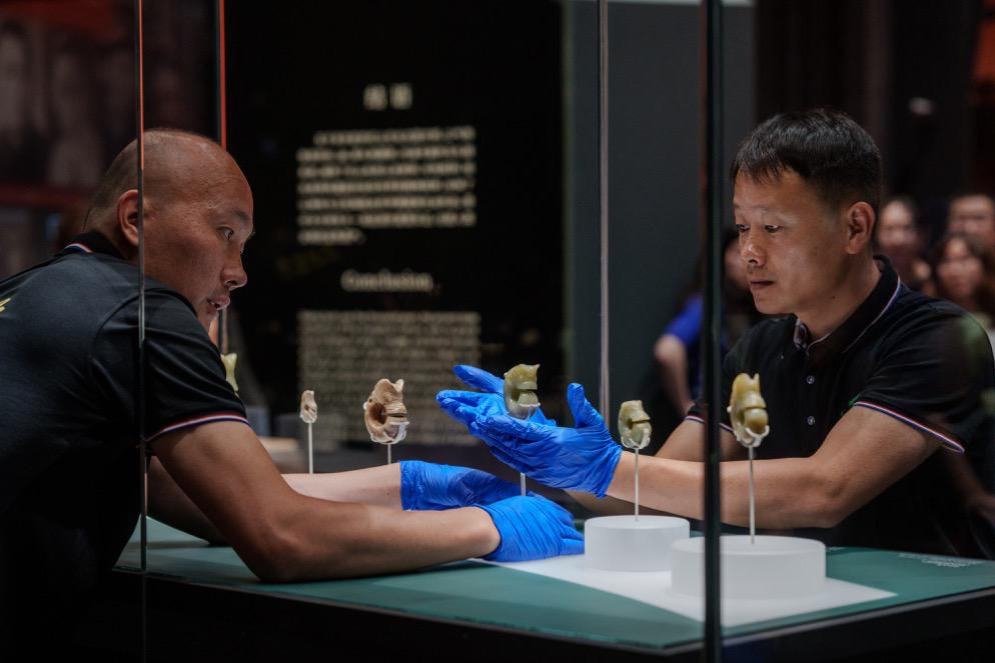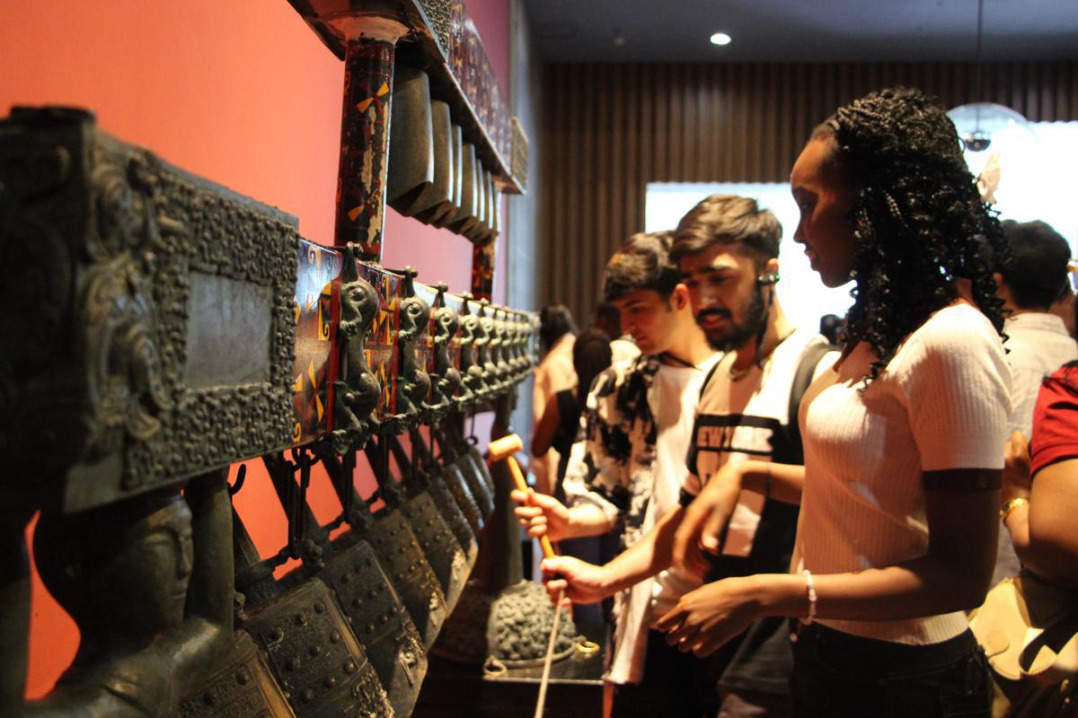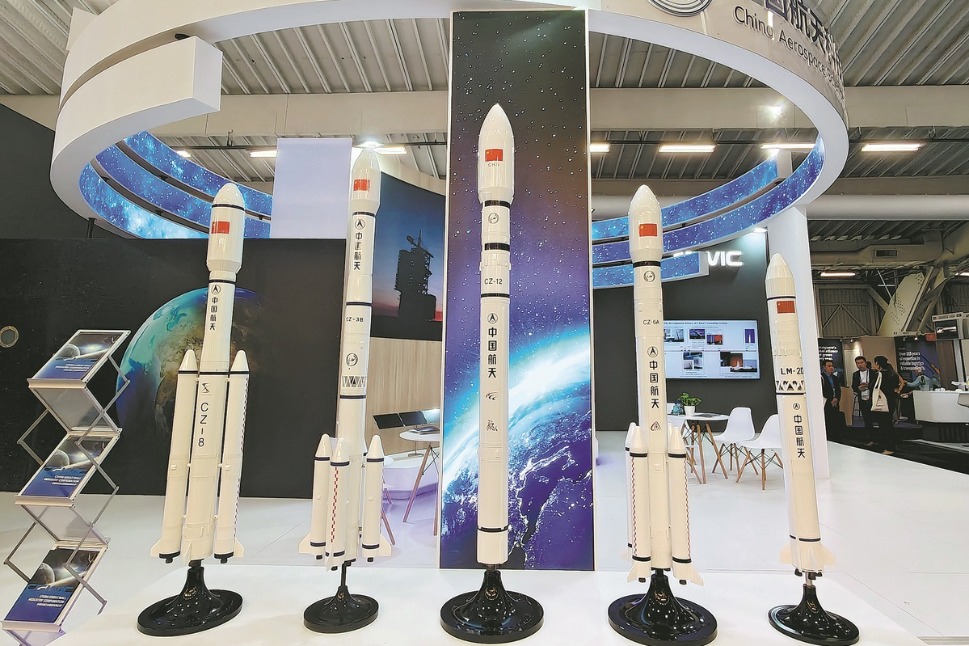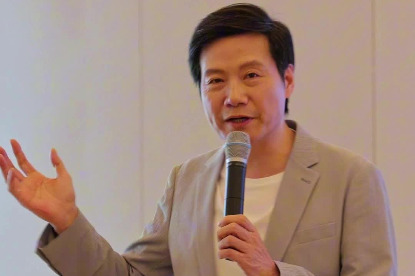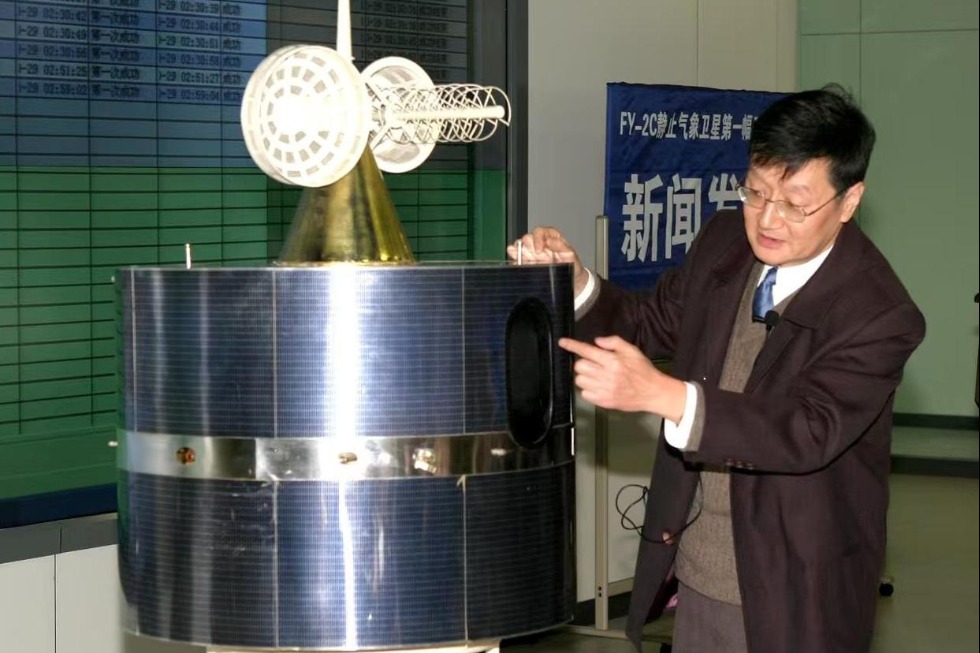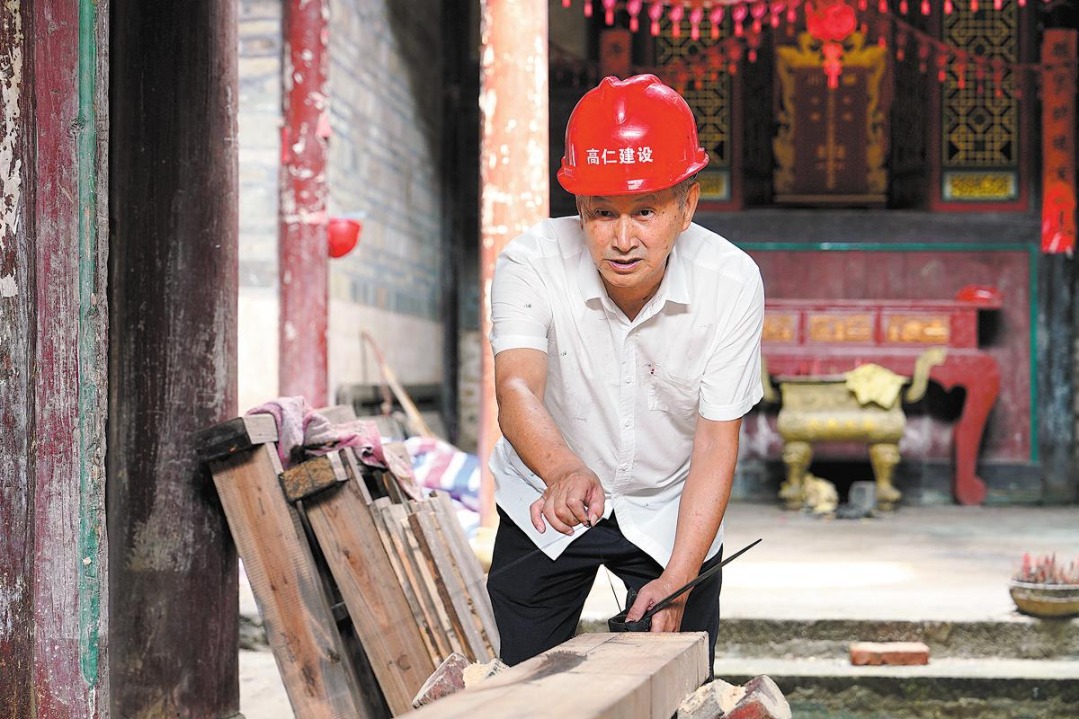Acrobatics turns over fortunes of county in Anhui

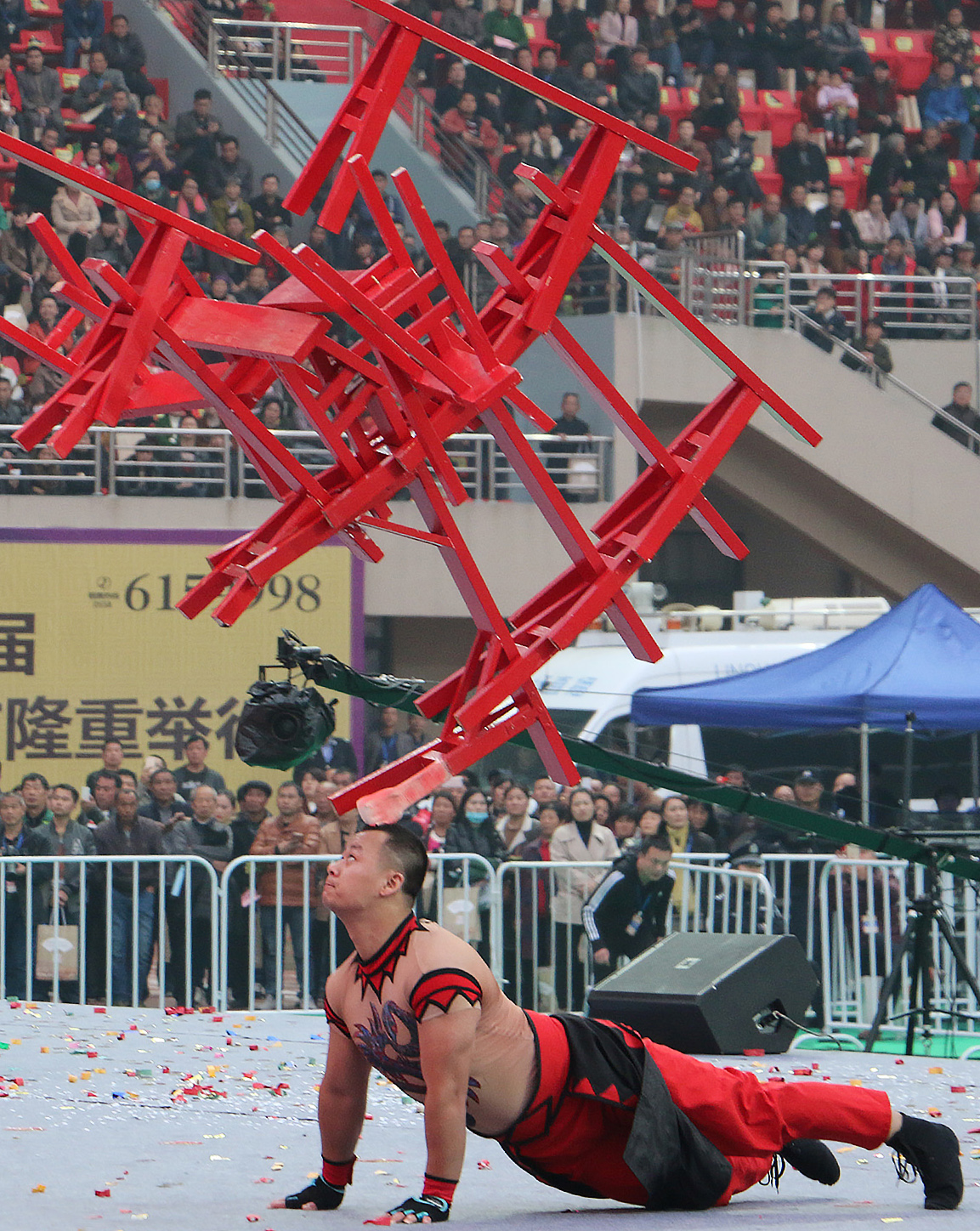
HEFEI - As the music from a violin starts to echo across the room, Hu Jun and his daughter Hu Siyuan begin to spin and dance gracefully while suspended by ropes in the air.
The performance, titled How Did Time Slip By, consists of many difficult acrobatic movements. Under the spotlight, the dance moves make what was once called "the tricks of the clowns" a spectacular show.
"Acrobatics is not just about the tricks and dance movements," said Hu Jun, 50, head of the Feitian Acrobatics Troupe. "We need to bring new vitality to the performances to allow people to enjoy the traditional art."
Hu Jun has been performing acrobatics for more than 40 years and is among more than 20,000 acrobats in Linquan county, Anhui province.
Linquan, one of the most populous counties in China with about 2.3 million registered residents, is known as the "hometown of acrobatics" due to its large number of acrobats. In the past, a huge population and limited land forced many locals to resort to performing acrobatics to make a living.
China pays great attention to the development of the performing art, with the Ministry of Culture and Tourism recently announcing that a national performing season of acrobatics will be held in the Guangxi Zhuang autonomous region in July.
Hu Jun's hometown, Weixiaozhuang village, is the center of acrobatics in Linquan, with 27 troupes from 44 families. In the village, acrobatics is a basic skill, "just like farming", he said.
"I began to perform in acrobatics when I was nine years old," he said, later following his master and performing around the country.
"We usually chose a site, built a makeshift shelter and just performed tricks like fire blowing or balancing chairs on our heads," he said. "The crowds would go wild!"
Despite simple equipment and a simple environment, their shows were always sold out as people did not have much choice in entertainment and tickets were quite cheap.
In 1997, Hu Jun established his own troupe and focused on aerial performances. Venues evolved from makeshift shelters to big theaters across China, with each show grossing more than 1,000 yuan ($145).
Even though the performances brought good perks, the public ridiculed his acrobatics as "the clown shows", driving him to improve.
"People would say we were clowns, but I wanted to prove to them that we could perform on stage gracefully," he said.
His daughter Hu Siyuan loved playing the violin and dancing, which inspired the senior Hu. The father and daughter decided to tell stories with acrobatics, music, dance moves and even yoga incorporated into their performances.
Their shows, including How Did Time Slip By and Standing on Ropes, stole the spotlight and brought their artistic skills to the next level.
Like the Hu family, many acrobats in Linquan began to incorporate modern elements into their shows.
As the Chinese government has promoted cultural activities in rural China in recent years and a large number of theme parks have mushroomed, Linquan's acrobatics became a big industry, generating more than 500 million yuan in revenue each year.
However, behind the enthusiasm is a lack of young talent. As the performances require vigorous training and can be dangerous, many parents refuse to let their children take on the profession.
In Linquan, there are currently six acrobatics schools, including one established by performer Hou Jie and his father, Hou Zhongyi. The school was built in 2009, and with the support of the local government, it offers free classes and accommodation.
"It is difficult to enroll students," the junior Hou said. "We provide regular classes to students in the daytime and acrobatics training in the early morning and at night."
Music and dance classes are also offered.
"Acrobatics was more about exciting and sometimes dangerous performances in the past," Hou Jie said. "But now we focus more on stage presence and the beauty of the art."
"Acrobatics is the calling card of Linquan, and we hope to use the performing art to bolster the tourism industry," said local official Xu Hongyan. "We hope to provide more jobs and stable income for acrobatic performers."
Xinhua
- CPC members work against the clock to restore normal life in rain-hit Hunan
- Ceremony commemorates legendary ancestor of the Chinese civilization Fuxi
- Former KMT chair leads Taiwan delegation to honor Fuxi, Chinese culture
- Shanghai conference discusses occupational mental health in China
- Qingdao Summit strengthens global ties through multinational cooperation
- Chinese vice-premier calls for championing humanity's common values, promoting multipolar world
















